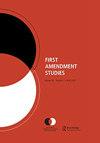亲爱的宝贝耶稣,这个不能透露姓名的乐队,以及你不能信任的朋友:在美国和欧盟,这些商标令人反感、不道德和可耻
Q2 Social Sciences
引用次数: 1
摘要
摘要本文将比较欧盟知识产权局(EUIPO)和美国专利商标局(PTO)对各自商标法的解释和适用方式,有时会得出相反的结论。尽管EUIPO可能不会注册被认为“违反公共政策和公认的道德原则”的商标,但美国最高法院已将《兰厄姆法案》中禁止“贬损”商标的条款视为违宪,美国联邦巡回上诉法院已将兰厄姆法中禁止“不道德的”或可耻的在分析了欧洲和美国商标诉讼中的法律论据后,本文得出结论,美国最高法院应该确认联邦巡回法院在in re Brunetti案中的裁决,因为“让市场来决定”比将跟上文化价值观变化的责任交给PTO审查员更有效。本文假设欧盟将继续努力阻止含有仇恨言论或种族诽谤的商标注册。本文章由计算机程序翻译,如有差异,请以英文原文为准。
Sweet baby Jesus, the band who must not be named, and friends U can’t trust: Disparaging, immoral and scandalous trademarks in the United States and the European Union
ABSTRACT This article will compare the ways in which the European Union’s Office of Intellectual Property (EUIPO) and the US Patent and Trademark Office (PTO) have interpreted and applied their respective trademark laws, sometimes reaching opposite conclusions. Whereas EUIPO may not register trademarks considered to be “contrary to public policy and accepted principles of morality,” the US Supreme Court has struck down as unconstitutional a Lanham Act provision that had prohibited trademarks that were “disparaging,” and the US Court of Appeals for the Federal Circuit has struck down a Lanham Act provision that had prohibited trademarks that were “immoral” or scandalous.” After analyzing the legal arguments in trademark litigation in both Europe and the United States, this article concludes that the US Supreme Court should affirm the Federal Circuit’s decision in In re Brunetti because it is more efficient to “allow the marketplace to decide” rather than place the onus of keeping up with changes in cultural values on PTO examiners. This article assumes that the European Union will continue in its efforts to prevent registration of trademarks containing hate speech or racial slurs.
求助全文
通过发布文献求助,成功后即可免费获取论文全文。
去求助
来源期刊

First Amendment Studies
Social Sciences-Law
自引率
0.00%
发文量
0
期刊介绍:
First Amendment Studies publishes original scholarship on all aspects of free speech and embraces the full range of critical, historical, empirical, and descriptive methodologies. First Amendment Studies welcomes scholarship addressing areas including but not limited to: • doctrinal analysis of international and national free speech law and legislation • rhetorical analysis of cases and judicial rhetoric • theoretical and cultural issues related to free speech • the role of free speech in a wide variety of contexts (e.g., organizations, popular culture, traditional and new media).
 求助内容:
求助内容: 应助结果提醒方式:
应助结果提醒方式:


